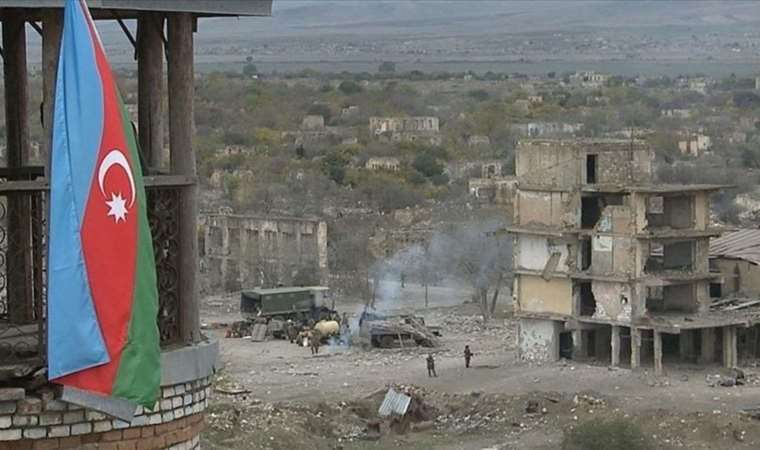Azerbaijan says Armenian officials continue policy of aggression
Armenian premier’s allegations on the situation in Karabakh ‘groundless,’ says Azerbaijani Foreign Ministry

Azerbaijan on Tuesday said that Armenian officials have continued their policy of “aggression.”
He was responding to statements made by Armenian Prime Minister Nikol Pashinyan during an interview with French Le Monde newspaper.
“Identification by the Prime Minister of Armenia of a puppet regime established by Armenia through the gravest war crimes and crimes against humanity, including ethnic cleansing and genocide against the Azerbaijani population of the region, as ‘democratically elected authorities,’ is a vivid example of a continuing policy of aggression and actions by Armenian officials,” a statement by the Azerbaijani Foreign Ministry read.
Describing Pashinyan’s allegations on the situation in Karabakh as “groundless,” the statement said that his assertions on the region contradict a previous statement he made, namely: "Armenia recognizes Azerbaijan’s territorial integrity including Karabakh.”
In response to demands made by Armenia to remove the border checkpoint at the entrance of the Lachin road, the Azerbaijani statement said that the checkpoint’s establishment is “completely in line with international law,” and added that the decision was made to “prevent malign actions by Armenia” and that the checkpoint’s existence is “not a subject of discussion.”
It went on to say that Yerevan’s refusal to consider Azerbaijan’s initiative to use the Aghdam-Khankendi road to meet the needs of the Armenian residents of Karabakh “demonstrates that allegations about ‘grave humanitarian situation’ in the region do not reflect the reality.”
It also said that Pashinyan’s allegations of a “blockade” on Karabakh despite the activities of the International Committee of the Red Cross in the region are “an attempt of manipulation of international public opinion.”
“It is absolutely unacceptable for the Armenian leadership to condition the sovereignty and territorial integrity of Azerbaijan under any pretext, it is a blow to the efforts aimed at the normalization of relations between the two countries and serves to maintain tension in the region,” it said.
Relations between the two former Soviet republics have been tense since 1991, when the Armenian military occupied Nagorno-Karabakh, a territory internationally recognized as part of Azerbaijan, and seven adjacent regions.
In the fall of 2020, Azerbaijan liberated several cities, villages, and settlements from Armenian occupation during 44 days of clashes. The war ended with a Russia-brokered peace agreement.
Despite the ongoing talks on a peace agreement, tensions between the neighboring countries increased in recent months over the Lachin corridor, the only land route giving Armenia access to Karabakh.
